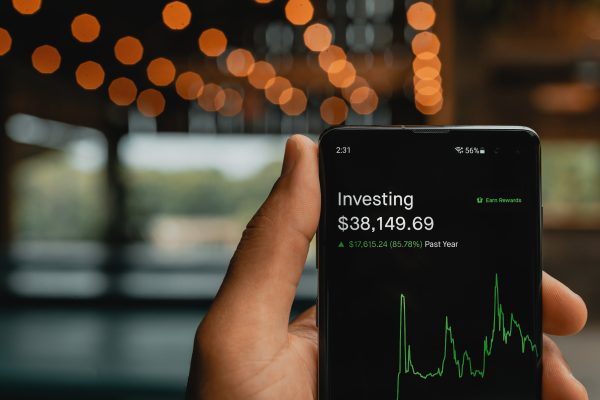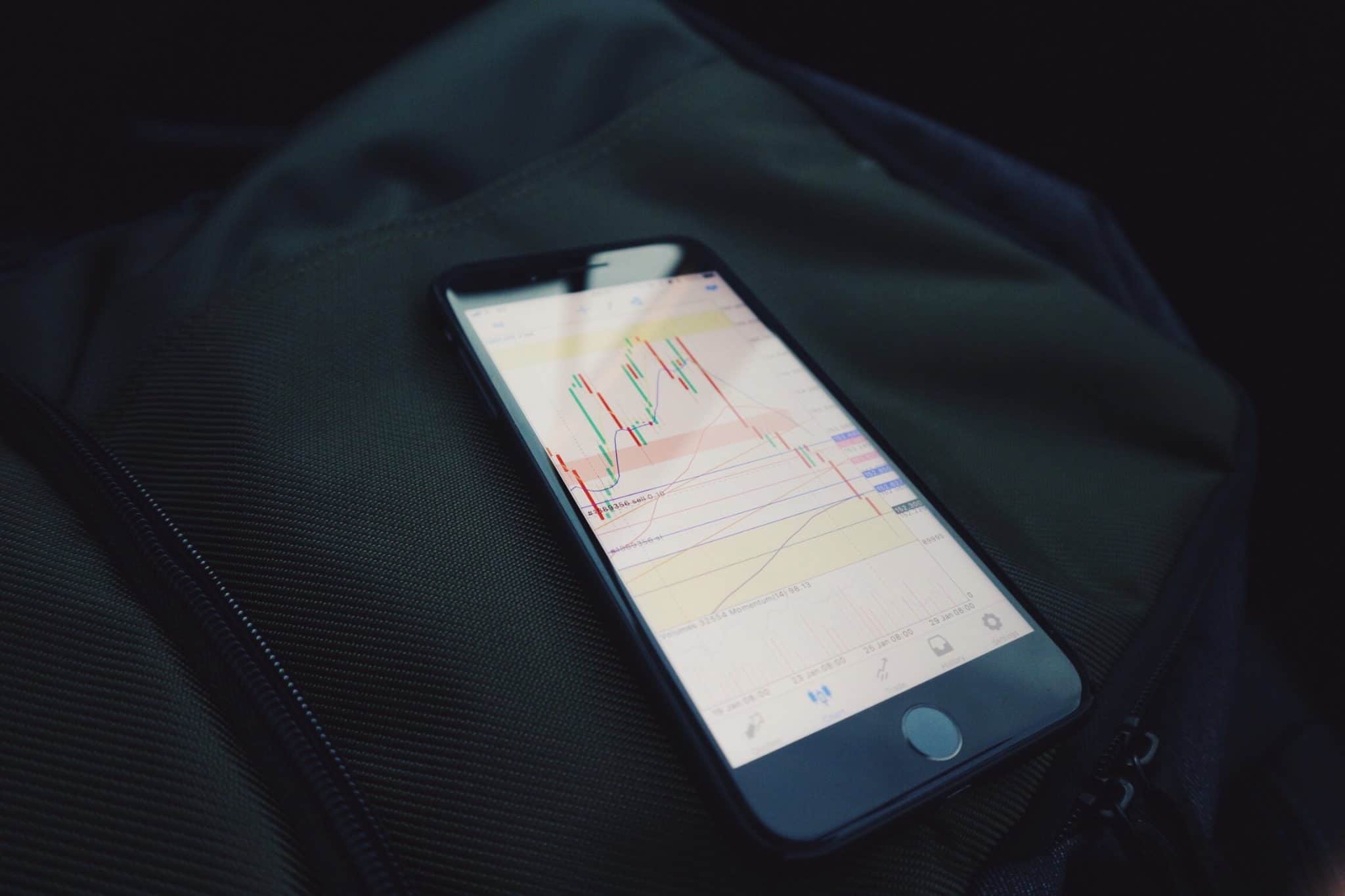
Stock Market Rally: What does it mean for your portfolio?
21 July 2023 6 min read

8 min read
Published:
Updated:

Mohsin Patel
Co-founder
Here at Islamic Finance Guru, we have written a few articles now trying to put into layman’s terms the daunting world of investing, since many of you simply want to invest in halal, sharia-compliant assets instead of being limited to cash in the bank. You can read some of those articles here, here, or here. You can also watch a video we did on the importance (and impact) of investing:
What I want to focus on in this article is how to actually practically go about investing in stocks and shares (they mean the same thing, by the way – the two terms tend to be used together or interchangeably, but they mean the same thing). It is easy once you have been investing for a while, as I have, to forget that at the outset you don’t know what to look for when signing up to a broker or what terms like ‘bid’, ‘ask’, or ‘spread’ mean, amongst other things.
Hopefully by the end of this post, you will feel confident enough to open an account and start investing if you have decided that that is something you want to do. You’ll feel like the guy in the picture once you place your first order but you’ll soon realise that it’s a walk in the park!
There are a plethora of brokers out there. Our ethos is to empower you folks to make decisions for yourselves. I’ll share with you who I like best later on, but this article should tool you up to do the research for yourself too.
With that in mind, here is a list of things I look when choosing a broker:
In the same way that I would not trust a bank that was not very well-established and did not have the trust of the general public, so too I avoid brokers who are quite new to the industry or who do not have an established track record. Ultimately, my hard-earned money will be sitting with these guys so my trust has to be solid.
There are two things to look out for under charges. The first is the actual commission that the broker takes per trade. So let’s say you want to buy £1000 of a particular company’s shares, the commission fee will be the fee that is taken to actually execute that trade. Typically, these fees tend to be around the £10 mark for most reputable brokers, but this figure will vary and some take it as a % cost of the overall investment amount. Most brokers will have separate fees if you are looking to buy into a fund so you should look at this too if you think you want to do this.
The second thing to look out for is whether the broker charges a fee for you to actually hold a particular account type. Typically, this will be classed as an administration charge or custody charge and will depend on the account type you hold. For instance, if you have an stocks and shares ISA or a SIPP, I have seen some brokers taking a quarterly admin fee simply for that account to exist. It will usually be a certain % of the total account value, often with an upper limit in £ terms. For instance, it might say 0.2% of account value up to a maximum of £8. Thus, if you held £20,000 in a stocks and shares ISA, a 0.2% quarterly admin fee would be £40 but since they stipulate a maximum of £8, that is what you would be charge. Of course, these figures will vary and you should check the service charges for the broker you are thinking of opening an account with to see what your running costs will be.
If you know that you only wish to invest in, say, the London Stock Exchange, you should check your broker has access to stocks within the LSE (it almost certainly will). However, if you wish to invest in other countries, you should check beforehand and you should check what the costs associated with investing in these other countries is as it will very likely be different to UK investment charges.
We all like things to be intuitive and nice to use so it is worth opening an account and playing with a demo account before going live with your own proper account with real money involved. That way, you can get a feel for the interface and see if you like it as each online broker very much has its own feel.
In light of the above, it is clear that investing is not as simple as taking your money and buying some shares with it. There are costs associated with you buying those shares and you should understand that they eat into your profits before you even have any profits, and therefore put you at an immediate loss. So a £1000 investment in reality is not a £1000 investment when you take fees into account.
For this reason, it makes little sense to start with a very small amount of capital. For instance, let’s say you have a broker who charges a £10 commission per trade. If a person invested as little as, say, £100, that investment is actually only £90 (not accounting for ongoing custody charges) due to the commission. So for that person to even start breaking even, they would need to see an 11% increase in the share price. Bearing in mind that a good investment property tends to yield around 5-8%, the best cash ISA is currently offering around 1% (obviously haram, but just using this is a comparison), and the FTSE100 as a whole has returned around 2% since the start of 2017, and you quickly see how impressive an 11% return would be. And that would only just be getting you back to the £100 you had in the first place.
You must also remember that besides companies listed on AIM (Alternative Investment Market), a 0.5% stamp duty will also be applicable on share purchases. It isn’t much, but it should be borne in mind.
However, if you started with £1000 and paid the £10 commission (plus stamp duty of 0.5% – £5), your initial loss is much less at 1.5%. The more money you invest, the less you lose in relative terms to the commission and other fees like stamp duty. So with £10,000 using the same fees, you would only be down 0.6% initially. And so on.
So whilst there is no theoretical minimum to investment amount, you will need to factor in the above and ensure that it is worth your while to actually invest.
When I first started buying shares through an online broker, it was very confusing because I thought shares just had one price. But I realised that the price that gets quoted in the press and other places is not quite the same as the prices used on the actual markets to buy and sell the shares.
When you buy a share, you pay the ‘ask’ price. When you sell a share, you receive the ‘bid’ price. The difference between the bid and the ask is known as the ‘spread’, and this is basically how the market makers (these guys are different to brokers usually) make money. They are effectively buying somebody’s shares off them at the bid price, and selling them to you at the ask price.
The reason I am explaining this is because when you buy a share, you will not be able to immediately sell it back to the market for the same price, due to the spread. For the big companies, these shares are very liquid – meaning they are traded very frequently and easy to buy and sell in volume – and the spread tends to be minimal for this reason. However, for the less liquid smaller companies, spreads can actually be as much as 2% wide or more, meaning that you could buy a share and immediately be down by a few % because you could only sell it back to the market immediately for much less than the price you just had to pay.
This is something to bear in mind in addition to the commission charge and other fees. You have to be prepared to be a little down on your initial investment and back your long-term conviction that the share price will increase in time to swing you into profit.
I personally use AJ Bell for my investments. For me, they strike the best balance in terms of the criteria I listed out above. I’ve also had great experience with their customer service. They also have a good range of Islamic funds on their platform.
This article, although not totally exhaustive, does a pretty good job in comparing charges easily for various providers and you can then check the brokers out for yourself by visiting their website. I am happy to field questions in the comments if you want help.
We have managed to get AJ Bell to set up a tracking link for us so that when anyone signs up via IFG, we get a small commission. If you like our work, this really helps us to continue. What it also crucially does though is mean we can objectively demonstrate a demand on the Islamic side for mainstream providers. We want to then take this to the other big players to get them to start catering for Muslims too. So if you are signing up to AJ Bell (ISA only), we’d be very grateful if you do it via the button below. If you don’t need an ISA and just want a standard dealing account, you should click here, or if you need a SIPP click here.
There are three main account types with a stockbroker – share dealing, ISA, SIPP.
A share dealing account is just a standard account in which to buy/sell shares as you see fit. You will be liable to pay CGT on any gains above your annual threshold and you will also have to account for any tax that might be due on dividends. There is no limit to the investment amount.
A stocks and shares ISA allows you to utilise your annual £20,000 ISA limit. This means you can only fund your S&S ISA with £20,000 maximum on an annual basis (every tax year). Keep an eye on the limit as these do tend to change every year. The great thing about an S&S ISA is that any gains are free of tax and dividends are also tax-free.
A SIPP is a self-invested personal pension. You will benefit from tax relief on funds invested but be usual to the normal tax rules when it comes to withdrawing money from a SIPP as applies to normal pensions.
For any doubt or queries arising out of this, or for help regarding what shares to actually invest in, please consult an independent financial advisor.
Generally speaking, people usually fill up their ISA allowance first (i.e. £20k) because you’re not taxed on gains. If you have more than £20k to invest, you can then put the surplus in the normal share dealing account but you’ll be liable to CGT on any gains.
I hope this helps you when it comes to the daunting world of practically investing. Once you get started, it will become second nature but if there are any queries I can help with, please feel free to contact us or comment below!

21 July 2023 6 min read

15 February 2023 7 min read

10 January 2023 11 min read